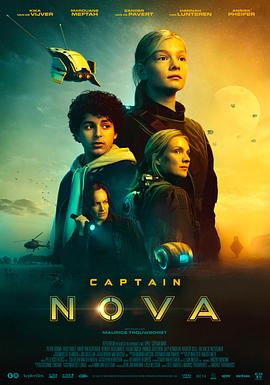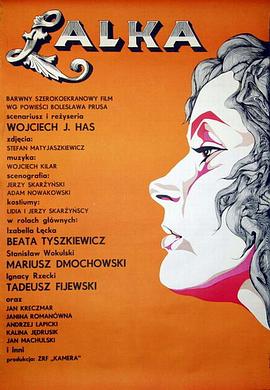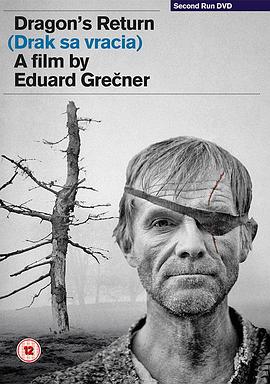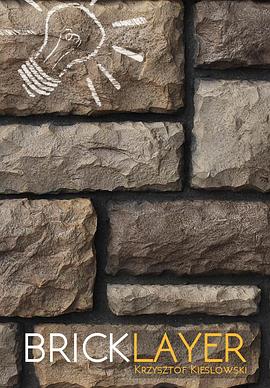搜索词:Jozef Gjura
美丽至极
朱塞佩·马吉奥,Eleonora Gaggero,Ludovica Francesconi,Elisabetta Coraini,Luca John Rosati,Ilaria Antonello,Michele Franco,弗兰科·拉韦拉,Alessia Olivetti,Gaja Masciale,Matteo Sintucci,Jozef Gjura,Edoardo Rossi,Demo Viola,Maurizio Cerchiaro
Marta may be an orphan, and she may be affected by a lethal illness, yet she is the most positive person one can meet. She wants a boy to fall for her. Not any boy - the most handsome of them all. One day, she may have found her match.
美丽至极3
Ludovica Francesconi,詹卡洛·科马尔,Jenny De Nucci,Jozef Gjura
手术后玛尔塔生命垂危,而真爱近在咫尺。然而,心灵能否战胜隐藏许久的秘密以及变幻莫测的命运?
诺娃队长
Marouane Meftah,Kika van de Vijver,Anniek Pheifer,Hannah van Lunteren,Joep Vermolen,Bram Blankestijn,Robbert Bleij,Pierre Bokma,Reinout Bussemaker,Steef Cuijpers,Hayo de Kruijf,Yahya Gaier,Micha Hulshof,Yannick Jozefzoon,Noël Keulen
In 2050, Earth has become a dry and desolate place. Fighter pilot Nova is forced to travel back in time to prevent a devastating environmental disaster, however an unforeseen side-effect of time travel makes Nova young again and she crash lands into 2025 as a twelve-year old. Nobody seems to take her and her mission seriously, except for Nas - a neglected teen who tries to keep this mysterious girl and her little flying robot ADD out of the hands of the secret service. Will Nova and Nas succeed in saving the future world?
夜茫茫
Elzbieta Starostecka,莱赛克· 泰来钦斯基,雅德维佳·巴兰斯卡,Czeslaw Wollejko,Lucyna Brusikiewicz,Irena Malkiewicz,安娜·迪姆纳,Gabriela Kownacka,马里乌什·德莫霍夫斯基,彼得·弗龙切夫斯基,Zbigniew Józefowicz,Janusz Bylczynski,Barbara Drapinska,Aleksander Gassowski,Wieslawa Kwasniewska
斯苔芬尼(Elzbieta Starostecka 饰)虽然出身平凡,但拥有着聪慧的头脑和善良的内心。她前往马修公爵(Czeslaw Wollejko 饰)家中担任家庭教师的职务,在一次偶然中邂逅了马修公爵的孙子瓦尔迪马(莱赛克· 泰来钦斯基 Leszek Teleszynski 饰)。斯苔芬尼不同寻常的气质和谈吐一下子就吸引了瓦尔迪马,令他坠入了爱河之中。 然而,这段贵族和平民之间的感情很快就遭到了瓦尔迪马的姑妈的强烈反对,她看中了一位名叫梅拉尼(安娜·迪姆纳 Anna Dymna 饰)的贵族小姐,认为她才是成为瓦尔迪马的妻子的最佳人选。然而,马修公爵对这段感情显然有着不同的看法,因为他年轻时也经历过同样的抉择。
玩偶1968
马里乌什·德莫霍夫斯基,贝娅塔·蒂希基维茨,菲耶夫斯基·塔德乌什,Jadwiga Gall,维斯拉夫·格拉斯,卡里娜·谢鲁斯克,Jan Koecher,扬·克雷奇马尔,塔德乌什·孔德拉特,Halina Kwiatkowska,安杰伊·瓦皮茨基,扬·马休斯基,Józef Pieracki,Janina Romanówna,Anna Seniuk,Irena Szramowska,Wladyslaw Dewoyno,卢德维克·伯努瓦,克雷斯蒂娜.费尔德曼,Aleksander Fogiel,Andrzej H
The Doll is an adaptation of the novel, The Doll (novel) by Bolesław Prus, which is regarded by many as one of the finest Polish novels ever written and, along with Pharaoh (novel), made Bolesław Prus a potential candidate for the Nobel Prize in literature. The influence of Émile Zola is evident, and some have compared the novel to Madame Bovary by Gustave Flaubert; both were Prus's contemporaries. The movie, however, may be more compared to Stendhal's Le Rouge et le Noir, (The Red and the Black). The Doll constitutes a panorama of life in Warsaw between 1878 and 1879, and at the same time is a subtle story of three generations of Polish idealists, their psychological complications, their involvement in the history of the nineteenth century, social dramas, moral problems and the experience of tragic existence. At the same time this story describes the disintegration of social relationships and the growing separation of a society whose aristocratic elite spreads the models of vanity and idleness. In the bad air of a backward country, anti-Semitic ideas are born, valuable individuals meet obstacles on their way, and scoundrels are successful. This poetic love story follows a nouveau riche merchant, Stanislaw Wokulski, through a series of trials and tribulations occasioned by his obsessive passion for an aristocratic beauty, Izabela Lecka, played by the famous Polish actress, Beata Tyszkiewicz. Plot: As a descendant of an impoverished Polish noble family, young Wokulski is forced to work as a waiter at Hopfer's, a Warsaw restaurant, while dreaming of a life in science. After taking part in the failed 1863 Uprising against Tsarist Russia, he is sentenced to exile in Siberia. On eventual return to Warsaw, he becomes a salesman at Mincel's haberdashery. Marrying the late owner's widow (who eventually dies), he comes into money and uses it to set up a partnership with a Russian merchant he had met while in exile. The two merchants go to Bulgaria during the Russo-Turkish War of 1877-78, and Wokulski makes a fortune supplying the Russian Army. The enterprising Wokulski now proves a romantic at heart, falling in love with Izabela, daughter of the vacuous, bankrupt aristocrat, Tomasz Łęcki. In his quest to win Izabela, Wokulski begins frequenting theatres and aristocratic salons; and to help her financially distressed father, founds a company and sets the aristocrats up as shareholders in his business.The indolence of these aristocrats, who secure with their pensions, are too lazy to undertake new business risks, frustrates Wokulski. His ability to make money is respected but his lack of family and social rank is condescended to. Because of his "help" (in secret) to Izabela's impecunious but influential father, the girl becomes aware of his affection. In the end she consents to accept him, but without true devotion or love.(wikipedia)
玫瑰色的梦
尤拉伊·恩沃塔,伊娃·比托瓦,约瑟夫·赫利诺马兹,玛丽·莫特洛娃,瓦茨拉夫·巴布卡,Jozef Belan,Míla Beran,Vera Bílá,Ján Gina,Libuse Havelková,Nada Hejna,Milan Kis,Ludovít Króner,马里安·洛布道,Stefan Mandzár,哈娜·斯利夫科娃,Anton Trón
An amiable picture about entering adulthood, great dreams, and the first - forbidden - love of a white postman, Jakub, and a pretty Gypsy girl, Jolanka. This is a poetic story, a mosaic of the playful world springing from the wild imagination of the village postman and its clash with the pragmatic mundane reality that finally beats the rosy dream's of the young protagonists. Director Dusan Hanak and screenwriter Dusan Dusek's most popular film has been cherished by critics as well as wide audiences at home arid abroad.
德拉克的回归
拉多万·卢卡夫斯基,古斯塔夫·瓦拉赫,艾米丽娅·瓦萨约娃,威廉·波洛尼,Jela Buckova,Jozef Cierny,Pavel Chrobak,米库拉斯·洛迪津斯凯,Ivan Macho,Ján Mildner,Andrej Mojzis,Jan Pelech,卢多维特·赖特尔,斯特凡·克维季克,Milan Mach
与Stefan Uher和Elo Havatta一样,Eduard Grecner也是60年代斯洛伐克新浪潮电影的缔造者之一。他的三部影片《一周七天》(1964)《尼绒月亮》(1965)和这部《徳拉克的回归》都是斯洛伐克新浪潮电影的代表作。这部叙事方法独特带有明显意识流风格的黑白影片甚至间接影响到了后来法国导演格里耶在捷克拍摄的两部影片《说谎的人》和《Eden and After》。 A special place in the development of feature films is reserved for Eduard Grecner, the creator of just one good film, Dragon Returns (Drak sa vracia, 1967), titled after the nickname of the lead character. After his initial work with Uher, Grecner made his mark as a proponent of the so-called "intellectual" film, the antithesis of the sociologically, or rather, socially critical film. Grecner's great role model was Alan Resnais, a young French filmmaker who sought to introduce Slovakia to the idea of film as a labyrinth in which meanings are created not by stories, but by complex configurations of dialogue, shots, and various layers of time, thus differentiating film from both literature and theater. In Dragon Returns―the story of a solitary hero who is needed by villagers living far in the mountains, but who is rejected by them at the same time because of his detachment―Grecner brought the tradition of lyricized prose to life through a whole series of formal aesthetic techniques. Alain Robbe-Grillet immediately developed this idea in the film shot in Bratislava The Man Who Lies (Slovak: Muz, ktory luze; French title: L'homme qui ment; 1968), and perfected it in Eden and After (Eden a potom, 1970).
砖匠
Jozef Malesa
A bit of color for once, all the better to see the red flags with, not to mention the obvious aerial file footage of Warsaw. The story concerns Jozef Malesa, the mason or bricklayer of the title. He was once the darling of the party, the son of two old party activists, a worker of heroic reputation, his own commitment to The Movement unquestioned. He was chosen to be destined for great things, specially educated and pushed forward to positions of responsibility in the Party. Eventually he decides, because of the ethical pressures which he feels from the obstructionism of the bureaucracy from above, he asks to return to be a simple bricklayer. He is disturbed with the way the Party deals with people, especially their lack of direct contact. He thinks workers know better than the leadership many times but that's not the way power flows. He is uncomfortable with the compromises to his idealism. He remains committed to social justice and joins his friends for the May Day rally where his comfort and confidence in his place in society cause him to defer to no man, certainly no rat faced men in overcoats with red armbands. His great pleasure in life moreover is laying brick. He finds the work satisfying and fulfilling which is why he was such an obviously superior worker in the first place.











